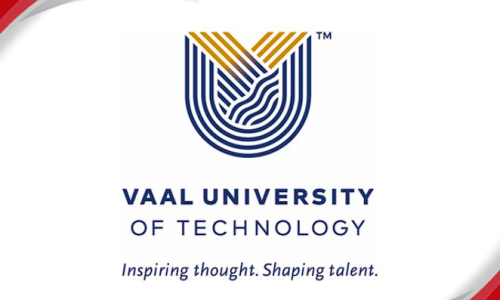Trends That Will Shape SA Education In 2024

Trends That Will Shape SA Education In 2024
- |
-
Dec 14, 2023
For the longest time, education systems have changed at the proverbial glacial pace. However, the rapidity of change in every other human-made system over the past few decades has put education under excruciating pressures to transform, to keep up and prove that it is fit-for-purpose in the modern world.
Education in South Africa is undergoing significant transformation which is driven by several key trends. This is ushering in an era where South African children are increasingly being educated in different ways, in different kinds of school environments with their teachers serving in different roles. In short, the education of today’s children is becoming increasingly different from the education that their parents experienced.
Mark Anderson, the Principal of Koa Academy, a high engagement online school started in 2021 in South Africa, is a strong advocate for schools delivering a relevant education that ensures that learners develop the real-world skills they need to succeed in the 21st Century. We’ve asked him to unpack six trends that are currently shaping the South African educational landscape and are set to become more evident in 2024.
Learning is becoming personalised
Personalised learning customises education to the individual learners needs, interests, and abilities. This is a radical shift from the traditional school classroom model where standardised content is delivered to a group of learners. According to Mark, we’ve known for decades that collective learning is far from effective, and that students learn best when they are on individualised learning pathways.
He says, “Due to constraints, we’ve traditionally modelled education on the assumption that if we teach in a very standardised way then most of the learners in the classroom will be with us, and that we might need to differentiate for just a small portion of that group. But the reality is that when we do this standardised teaching and assessing, we actually miss most of the learners.
The research is clear, learning is a highly personal journey, and therefore our education needs to be tailored for individual learning, not group learning. So, we are seeing big shifts in the ways that schools are thinking about how content is delivered and how assessments are done to be much more personalised and individualised, while at the same time operating within constraints, which may be economic, geographic, and meeting legislative requirements.”
Personalised learning not only changes the education experience for learners. Teachers are no longer mere presenters of content, but the expert guides and facilitators who dynamically support and coach each learner as they progress on their unique learning pathway. “Personalised learning unleashes the real expertise of teachers who are trained to have deep knowledge and experience of how people learn and about different learning styles,” says Mark.
“It also addresses the major concerns that parents have when their child is either left behind because they are struggling with certain concepts, or they are bored in class because they grasped some other content more quickly than their peers.”
The growth of online education in South Africa is also driving the trend towards personalised learning. Mark says, “The online space is amazing for personalising the education journey. It opens up limitless opportunities to present content in different formats to suit different learning styles.
Individualised dashboards and timetables empower learners to chart their own course and track their own progress. These tools also enable teachers to track every learner’s progress in real-time and quickly identify where learners need additional support.
Mastery and competencies are in the spotlight
The mastery-based approach shifts the focus from advancing because of your age or grade level to advancing because you’ve mastered the concepts. This emphasises not only a deeper understanding of subjects and the abilities to apply learning but also ensures that no student is left behind. Mark says, “The real strength of the mastery-based approach is that we don’t plaster over gaps in learning. Historically, this has been a significant problem for kids in South Africa where they are promoted into the next grade, even when they have big learning gaps.
This has happened particularly in Languages and Maths. Kids are pushed through into the next grade because schools understandably must get them through the system. They end up going to the next grade with a shaky foundation and then we keep building on top of that, and it all comes crumbling down. The idea of mastery-based education is that you can move at your own pace. Once you have shown mastery in a particular area, you can move ahead without having to wait for others. So, if a child is particularly strong in Maths and ahead of their peers, they move on quickly. They then have more time to focus on the areas where they are not so strong, perhaps in their language course they may need to slow down or take extra time to get help from a teacher. The mastery-based approach goes hand-in hand with personalised learning, and it doesn’t work in large groups.”
For teachers, the mastery-based approach means more precise assessments, greater flexibility, and a redefined role in helping students achieve mastery, rather than just teaching to a curriculum.
Gamification has entered the education landscape
With its propensity to deliver dopamine boosts, gamification is making learning more engaging and interactive. Through game elements such as targets, leaderboards, points, and rewards, schools are creating more enjoyable and motivating learning environments. For learners, this trend can encourage problem-solving, collaboration, and creativity as they navigate through challenges and adventures in the pursuit of knowledge.
Mark says, “It’s important to note that gamification in education is not just about having fun. It’s about being rewarded for progress and inspiring you to be accountable for your own learning. The idea is that I know what my academic goal is, I know what I must do to reach my goal, and when I reach it, I am rewarded. This is a tangible recognition that I have levelled up and it gives me an indication of my progress.
As you are working, the gamification platform is telling you the things you are getting right, and it is showing you where you are tripping up or dropping the ball. This gets my buy-in on my learning process, I can understand my strengths and challenges more clearly, and it makes me want to reach the next level. Of course, in the online space, gamification is incredibly easy and there’s a lot of expertise to hand when it comes to hooking you in and levelling you up. While that may not be good for us when it comes to platforms like social media, we can get a positive result with gamification in education because when we see our growth and our development, it makes us want more of that and so we spiral upwards.”
AI in education is already a game-changer
We’re only seeing the tip of the iceberg at this moment. Mark says, “In the early 1980’s, educational psychologist, Benjamin Bloom conducted research into teaching and learning techniques that showed that average-performing students who were exposed to one-on-one tutoring could perform better than 98% of their classmates who experienced classroom learning only.
He coined the term ‘the 2 sygma problem’ in reference to the fact that our education systems are not built to deliver one-on-one tutoring to every student, and this solution to attain optimal educational efficiency is simply not scalable. One of the great promises of AI is that it has the potential to fill the gap in one-on-one tutoring. We are already seeing the emergence of, and classroom testing of AI tutor models such as Khan Academy’s Khanmigo. An AI tutor model embedded in an education platform means that the platform can see exactly where each learner is and what they are struggling with. It can then immediately provide the precise guidance or help the learner needs so that they can master the concept and progress.
This use of AI supports both personalised learning and the mastery-based approach. This is just one way, a very important way, that AI can be deployed to enhance education in the future. We are also likely to see AI making an impact in freeing up teachers from routine administrative tasks so that they can spend more time focusing on meaningful engagement with their learners.
We’ll no doubt see AI coming to the fore when it comes to analysing learner performance data, identifying learning gaps and creating individualised learning plans.
Soft skills are foundational instead of ‘nice to have’
If modern education is to meet the workplace demand for young generations with the skills to succeed in their jobs, then gaining soft skills needs to be prioritised in school and tertiary education. In a 2019 LinkedIn Talent Trends survey, 91% of employers ranked soft skills as their top requirement in the recruitment process. Research conducted by Harvard University, the Carnegie Foundation and Stanford Research and published by the National Soft Skills Association concluded that soft skills make an 85% contribution to career success.
Demand for high engagement in online schools
The COVID-19 pandemic greatly accelerated the uptake of online education in South Africa. However, a curriculum dumped online and accessed by large groups of learners doesn’t make a school or a college. Mark says, “As online education evolves in South Africa, and the world, we’re seeing different models emerge based on the needs and wants of learners and their families.
These trends transforming education are reshaping the roles of teachers and the experiences of learners. As personalised learning and the mastery-based approach develop further, more South African learners will be set on their own pathways to develop as lifelong learners.
We can expect that gamification in education and AI will be revolutionising forces in the years ahead. It’s taken a long time for our education system to evolve, in many ways it is still woefully out of step with the world of work, but change is happening; and the pace of change in education is certainly accelerating.
Discover Koa Academy, visit www.koacademy.com
Add a Comment
Related Resources
Get New Jobs Notification!
Sign up with your email address to receive news and updates. Subscribe to get our latest content by email. We respect your privacy, Unsubscribe at any time.

























Comments